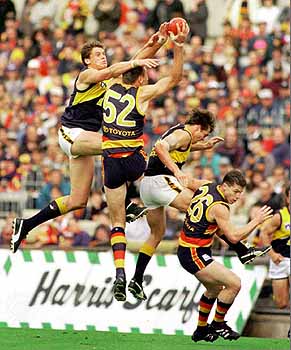
There was considerable discussion at the IOC World Conference on Prevention of Injury and Illness in Sport about the need for implementation studies – one could even say there was a certain buzz about this. In my keynote address about the art and science of implementation research, I emphasised that to be most useful such studies would need to employ creative approaches and methodologies and that I expected this to be an area of research growth and development over the next few years.
It is not yet fully clear about what research approaches would best suit this new field, but some guidance is given in a chapter in the 2009 Sports Injury Research textbook, edited by Verhagen and van Mechelen. [1]
My research team is currently undertaking the first large scale implementation research study for sports injury prevention, with a focus on better understanding the uptake of exercise training programs in community football (in this case, Australian football). Using the ecological version of RE-AIM for sports delivery [2] as the evaluation framework in a three- arm controlled study design, the study is comparing the real-world uptake and sustainability of two intervention delivery modes (fully-supported vs unsupported) compared to standard practice as the control. The study protocol is available from the BJSM’s sister journal, Injury Prevention [3]. Whilst describing our NoGAPS study in detail, the protocol could also be used to provide additional guidance and information that may be helpful for others wanting to design similar studies.
1. Finch, C., Chapter 16: Implementing studies into real life, in Sports Injury Research, E. Verhagen and W. van Mechelen, Editors. 2009, Oxford University Press. p. 213-235.
2. Finch, C. and A. Donaldson, A sports setting matrix for understanding the implementation context for community sport. British Journal of Sports Medicine 2010. 44: p. 973-978.
3. Finch, C., et al., Towards a national sports safety strategy – addressing facilitators and barriers towards safety guideline uptake (the NoGAPS project). Injury Prevention, IP Online First, 2011. February 22, 2011: p. doi:10.1136/ip.2010.031385.
Professor Caroline Finch is a NHMRC Principal Research Fellow at the Australian Centre for Research into Sports Injury and its Prevention (ACRISP), Melbourne, Australia. You can follow her on Twitter @CarolineFinch